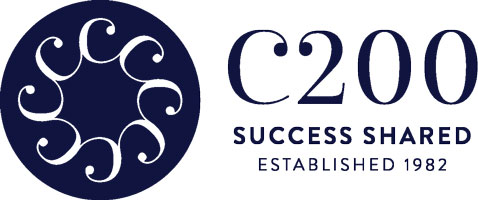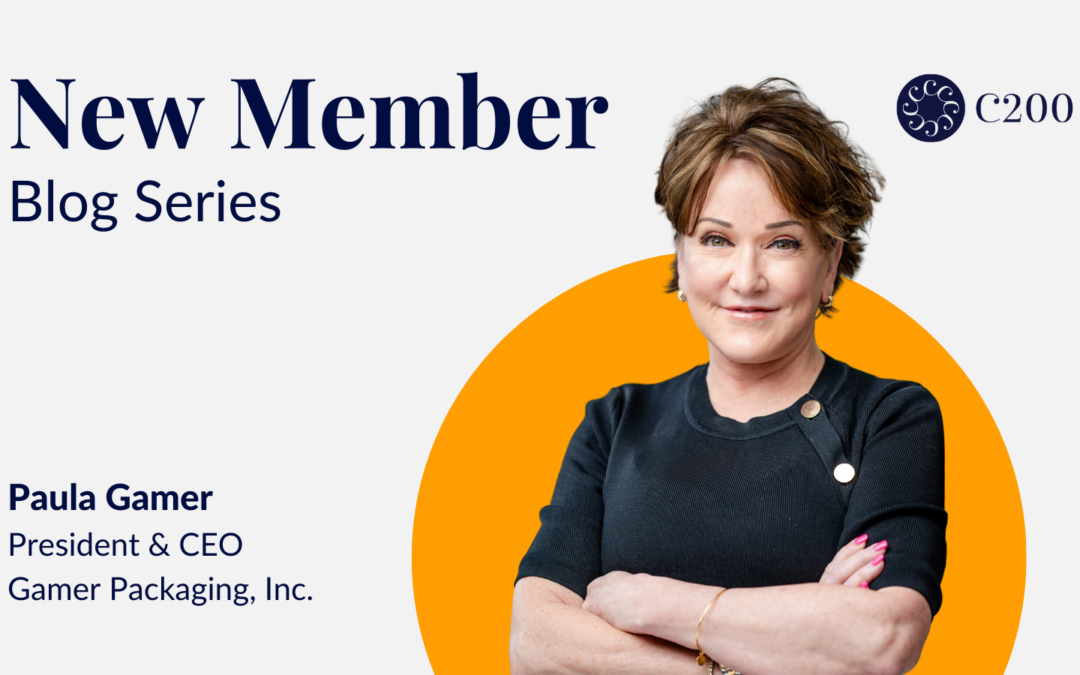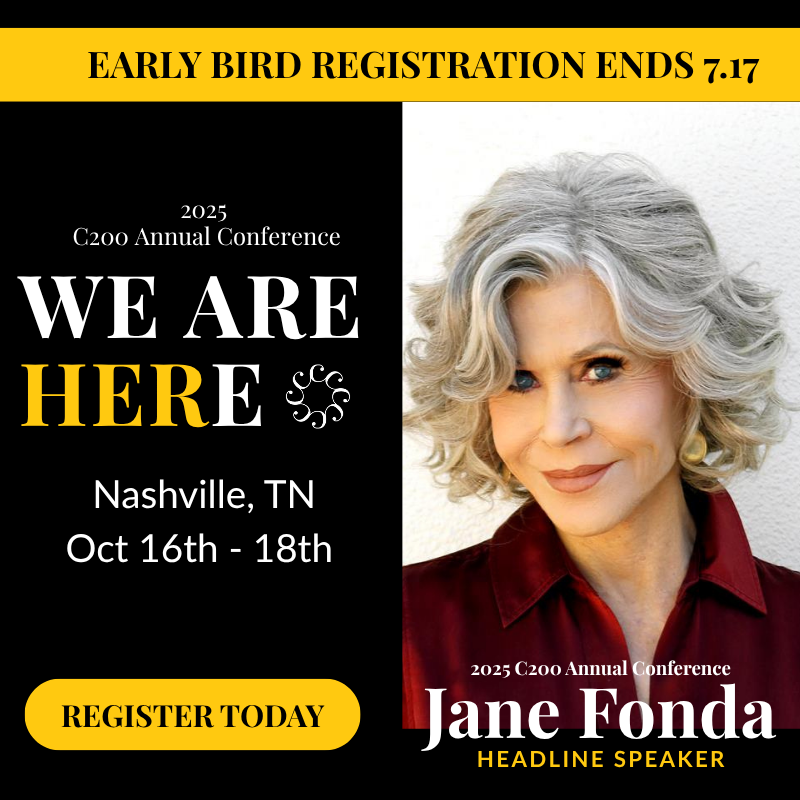Paula Gamer is President and CEO of Gamer Packaging, a privately-held and family-run business she runs with her husband (Chairman and Chief Strategy Officer) and son (sales). Their clients range from food and beverage, pharmaceutical, and consumer goods. Paula is passionate about empowering women in sales, especially mothers who left their jobs to raise their children and looking to rejoin the workforce. Paula has three children with her husband and enjoys spending time at her lake house in Northern Minnesota. Paula has been a C200 member since May 2023.
Eva Glassman: Could you please introduce yourself and describe what you do?
Paula Gamer: I’m the President and CEO of Gamer Packaging, a packaging distribution company serving primarily the food & beverage and personal care industries. Think of going to Target—any product you see on the shelf could be packaging that we provided.
My father-in-law started the business 37 years ago, and then my husband and I ran it together. My husband is semi-retired, so I’ve taken over the active role of President and CEO. I’m shifting my focus more and more to the company’s long-term strategy and less on the day-to-day responsibilities, which is sometimes difficult because I can easily be pulled into the latter.
EG: When you say “long-term strategy” and “day-to-day responsibilities,” what do you mean by that, and what precisely do you want to shift your focus to?
PG: Some of the day-to-day tasks entail helping to resolve customer collections issues and financing programs, assisting managers with potential HR issues and recruiting, supplier and customer meetings, and attending trade shows.
As for longer-term strategy, I think about policies and procedures in the 2–3-year outlook. For example, remote work policies, building leases, compensation programs, and IT strategy.
Even longer-term, I’m looking at succession planning for the company, how to grow and where to invest.
EG: I’m curious to know more about your career journey. What do you believe is the most significant factor in your success and where you are now in your career?
PG: A key to my success was luckily knowing from early on in my childhood what I wanted to do and having a great role model. I always knew I wanted to be in sales like my mother—she was a terrific salesperson. Right out of college, I started selling computers, which I did for about ten years. Then, I got married when I was 30 and had two kids while my husband worked for his father at Gamer Packaging.
What was always interesting to me was is if our nanny called in sick from work, my husband would look at me as if it was my responsibility to find alternative childcare. Not only was I working full-time, but I was also in charge of running the house. I’d say, “Oh jeez, now I have to cancel all my meetings or scramble to find someone to watch the kids.”
I also had to travel for my job, which became increasingly difficult with two kids. That’s when we decided I would leave the workforce and concentrate on raising our children. During that time, I had my third child. Fortunately, I could still serve in an advisory role or board position at Gamer Packaging, so I was still involved but wasn’t going into the office or even on the payroll at that point. Because I had been in business—and because I loved it—I was still able to lend my two cents from a board position, which I really enjoyed.
Then, when our kids got older, I realized how much I missed working; it wasn’t fulfilling just to raise children for me. Luckily, we had this family business, and I was able to step right back into the business world and add value because I knew everything about the company and had ten years of business experience on my own. Most women who leave the workforce to have children do not have that opportunity. That’s something I’m passionate about; if we have someone apply to work for us that left the workforce or has a significant gap in their resume, I’m really forgiving of that. So many women have so much to offer, and if they leave the workforce to raise children for a period of time, it’s tough for them to step back in. I was lucky that I had an easy transition back to work. Maybe someday, when you have children, you’ll face this, and I hope someone gives you a chance if you leave and want to reenter the workforce.
EG: I think about that a lot. The bureaucratic consequences of having children are so unfair for women, yet it’s so common.
PG: At this point, women must try to make little changes in their own sphere of influence. That’s what I try to do. I’ll hire a 50-year-old woman re-entering the workforce in a heartbeat.
EG: Along your career journey, were there any women who were mentors to you? If so, who were they? Who are the women who have inspired you over the years, and why?
PG: That would have to be my mother. As I said, she always worked full-time and had a very successful career. My dad retired after a heart attack at 55, but my mother continued to work until 65 and was actually the primary breadwinner. She was just a terrific salesperson. She always said she liked to hire women salespeople because men would get a big sale, celebrate, and say, “I’m going to take a couple of days off,” but she found that women would get a big sale and immediately say, “Let’s go get the next one.” I’ve seen this same drive in women salespeople as well. My mother was outrageously successful and always encouraged me. I could count on her for great advice when I started working and was fortunate to have my mother around for a good part of my career.
Now, I take inspiration from my female employees, from people younger than me! I see them trying to juggle everything, and it’s just so inspirational to me.
EG: That is so important. We can learn from our elders, but we can also learn from the people younger than us because, like each generation, they go through things unique to their generation that anyone can learn from. For example, I think about babies right now and children growing up in the age of a pandemic. I’m curious to see how they continue growing up and what perspective they’ll offer us years later. I believe everyone can learn something from all ages.
PG: Absolutely.
EG: What does being a “woman in business” mean to you, and how do you apply that thinking to your work as an entrepreneur?
PG: I feel a responsibility to be a mentor. Even though there are more and more female CEOs every day, there’s still not that many of us. I feel a responsibility to make sure I’m showing up. I try to be careful about what I say and how I say it; I know people are watching me, especially women. I really try to be “on” but also not be too overboard about it. I’m not perfect and I want people to know you don’t need to have all the answers to be successful. I try to walk the fine line of being a mentor and not trying to come off as perfect. I try to show people that we’re all human beings and it’s okay to make mistakes.
Over the years, I’ve also learned not to be intimidated by my male counterparts. I’m in a very male-dominated industry and can think of very few female CEOs in packaging, but I’m not intimidated by that anymore. I guess I’ve become more comfortable in my role; confidence has come with age!
EG: You have to go into certain situations with that mindset. Even if you don’t fully believe it, you have to convince yourself in that moment because it shows in how you carry yourself.
PG: You must own it and wear it.
EG: Outside of work, what do you like to do for fun?
PG: I’m up at our lake home in Northern Minnesota right now, which is a fun place for us. I spend as much time as I can up here. I love being with my kids; I have three adult children, and two of the three just got engaged so I will be planning some weddings over the next year! I also like to travel. Overall, being with my family is the most fun for me.
Life has gotten simpler for me over the years. While still loving to travel, how we travel has changed. For example, if we go to Europe, I don’t feel the need to see every possible church or museum anymore; now, I’m okay with looking at a few and then lying by a beach and taking it a bit easier.
EG: What would be your advice to aspiring female entrepreneurs and corporate leaders to advance their careers?
PG: Try to find a mentor. It’s not always easy, but it’s great if you can find a female mentor. However, a male mentor works too! I’m still in contact with my first boss; I’ve known him for 40 years. Learning from a man helps you understand their attitudes about women in the workplace. For me, having a male mentor was very interesting.
What’s important is finding a mentor you can bounce ideas off of and not being afraid to ask questions or make mistakes. Only one in ten things will probably work out for you, so the faster you get through those nine to get to the tenth, the better.
EG: That advice reminds me of what you said earlier about walking a fine line to be “perfect” but not looking like you’re trying too hard. I think that’s something women especially have to reconcile with because there is a lot of pressure for women to represent themselves well in male-dominated fields. That pressure comes with feeling as though you have to be perfect and nail it every single time, but that’s unrealistic and is another unfair standard women in business constantly face.
PG: Yes, agreed!
EG: Finally, what are you most excited about as a new C200 member?
PG: I’m most excited about being able to give back; I’ve been looking at getting involved with the Protégé Program. I’m also interested in joining the Family Business Council because I run a family business, and those in the same boat know it’s a whole different dynamic. I’m incredibly excited to connect with the other C200 members in family businesses to learn more about how to navigate the issues unique to us.


